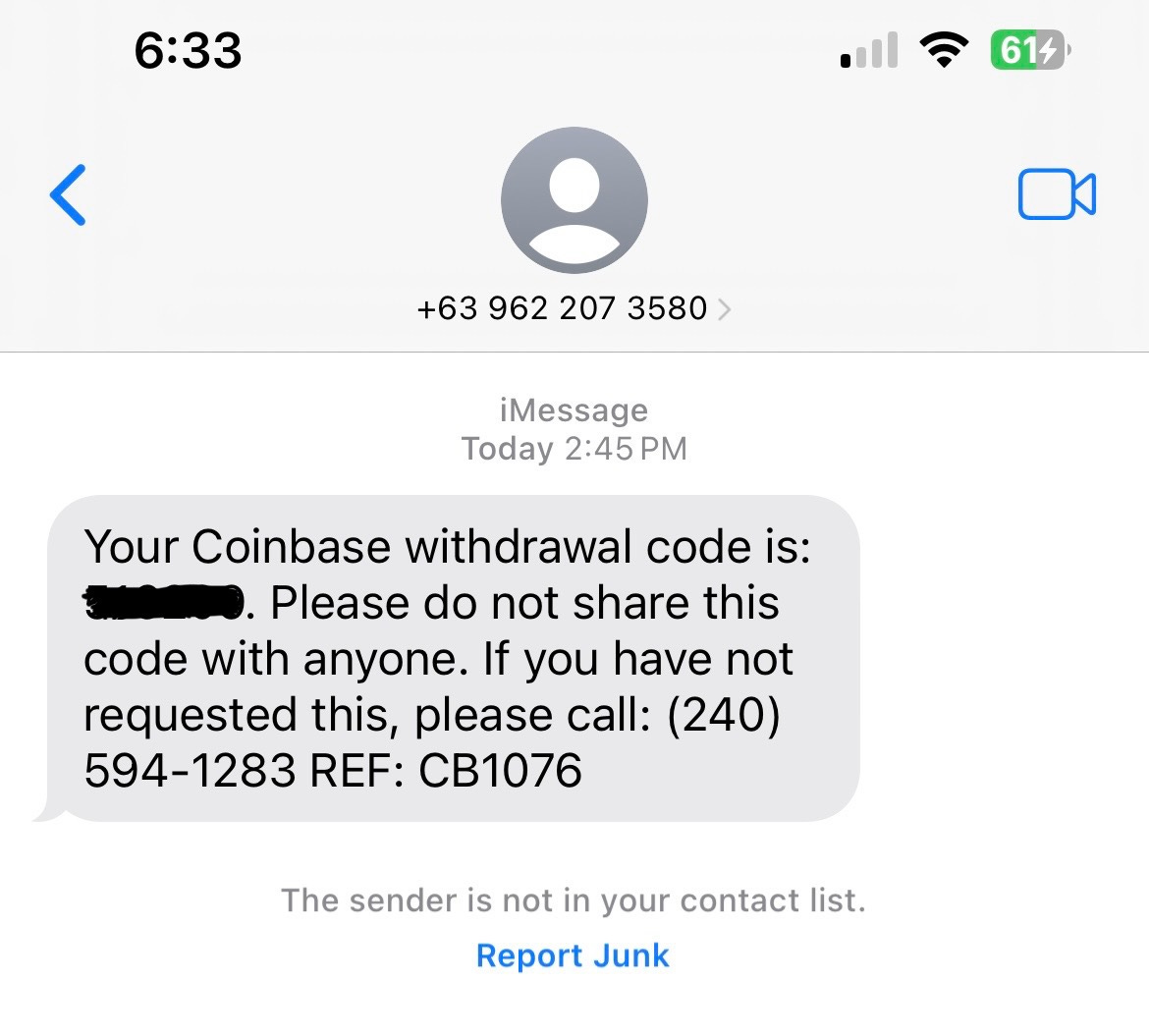The scam text that almost got me
It looked official. It felt urgent. I almost called.

It was Saturday afternoon when I got the text. A 12-digit number I didn’t recognize lit up my phone with a message claiming to be a withdrawal code from Coinbase.
It warned me to call a number “if you have not requested this.”
I froze.
I have a Coinbase account. My first instinct was to call. The message looked real enough, and the timing felt urgent. For a few seconds, I was ready to act without thinking.
That’s the part that bothers me the most: I almost went through with it.
We hear about scams all the time. Someone’s parent gets tricked. A friend of a friend loses thousands. It’s always someone else.
I’ve always believed I wouldn’t fall for something like that. I keep my passwords strong. I don’t click suspicious links. I stay updated on the latest fraud tactics.
And yet, I came close.
Something made me pause. The number was too long. The wording felt off, like it was trying too hard. I remembered that scammers often rely on fear and urgency to override common sense. So I didn’t call. I deleted and reported the message and moved on.
But the close call stayed with me.
It made me realize I haven’t had enough Money Talks about securing money. I’ve talked plenty about making, saving and investing it, but not about protecting it from threats like this. I’ve always taken security seriously, but this showed me how much the risks keep evolving — and how important it is to keep up.
What really stuck was thinking about what would’ve happened if I had called.
With voice recognition and cloning technology improving fast, even short voice samples can be misused — especially when paired with other personal info. Scams like the “say yes” scheme — where callers try to record you agreeing to something — show how small interactions can be exploited.
It made me rethink how I protect myself and how quickly trust can be misplaced.
Now, I think twice before speaking to unknown numbers. I pause before reacting to anything involving money or urgency. I double-check sources, even if the message feels legit. That split second of doubt might be the best defense I have.
Because the truth is, it doesn’t matter how smart you are. These messages are designed to cut past logic. All it takes is one moment of panic.
So here’s what I learned: be careful.
Whether you’re young or old, broke or financially secure, no one’s off-limits.
Don’t assume it won’t happen to you.
I almost found out the hard way.




Saturday evening I got THAT CALL from the magazine company that gives away millions of dollars. She spoke with such joy and happiness for my being a winner and I needed to URGENTLY complete and return the documents that they had sent to me so that I could receive my unclaimed prize!! We went through this with our friend last summer so I was more than prepared to shut this scam artist down. I proudly and profoundly let her know that I never apply for nor had I received anything from them. Satisfied that I had properly told her off, I hung up the phone, feeling quite superior.
VOICE RECOGNITION TECHNOLOGY!? ??
Good Lord I gave her enough to own me!
Thanks for this increased, higher level warning! Say nothing! Hang up! Better yet, Don’t answer unknown numbers - legit businesses or friends will leave a voice mail!!
Thank you for sharing and potentially saving some of us from embarrassment and financial loss!!
I always google unfamiliar numbers or type in the company name with “scam” and see what that gets me. They are some clever lil so and so’s, but that pause/moment of doubt definitely saved you, your funds and your sanity!